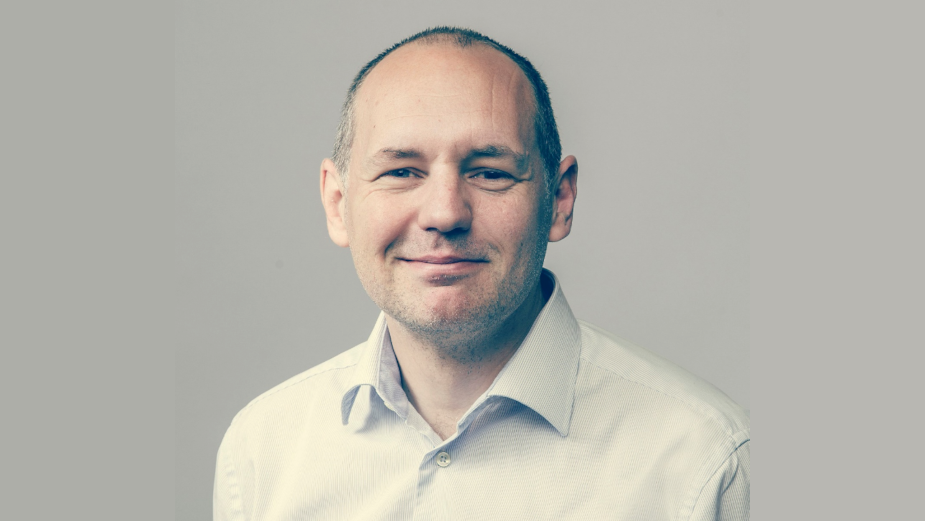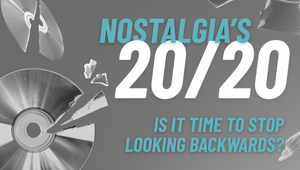
Meet the Technologists: Steve Sanderson

Steve Sanderson is the newly appointed SVP and director of integrated creative and production technology at Momentum Worldwide – a mouthful of a job title. But a particularly apt role for these times creative companies operate in.
Steve has been part of McCann Worldgroup since 2014, leading the strategy and architecture, delivering enterprise technology products and supporting global operations.
Before Momentum, in his dual role at Craft Worldwide and IPG Studios, Steve led technology globally, embedding technology across disciplines. Through a combination of cognitive robotic process automation, common data models, and machine learning, underpinned by a unified data model, the solutions Steve deployed enabled the business to contextualise data sources across multiple services and generated efficiencies through workflow and project management systems.
LBB’s Alex Reeves spoke to Steve to try and understand how he defines these potentially intimidating concepts and to get to know the person behind it all.
LBB> You spent many years early in your career as a retoucher. What led you to that role?
Steve> I started my career in finance. I was a junior market maker in the same building where Momentum is now in a strange coincidence. My early experiences forged an understanding of my creative instincts. That, in turn, led to my return to college and studying photography. After a short stint as a photographer's assistant, I found my first role at a small design agency as a scanner operator and junior retoucher. Back then, digital was called new media and, being the junior, I became immersed in the new parts of the agency. I loved the challenge of being at the forefront of this new industry and working with new and emerging technologies.
Being at the bleeding edge of technology became the theme for my career. In my next role, working for DDB and my first creative agency experience ignited my desire to blend a creative, operational and technical mindset. The intersection of these disciplines set me on the path to today.
LBB> How did your retouching career morph into broader roles around production technology?
Steve> Starting at my earliest roles, I constantly experimented with the latest technologies. What drives me is the technology that supports the work and helps us create better, smarter and faster. I created a colour management strategy to support soft and hard proofing at DDB London. I was head of the 2D and 3D imaging studio; DDB needed a production operating system to support the integrated business model, including asset management and online approval for image and content production. I designed and implemented the solution for the agency and enjoyed the challenge.
It was a natural step for me to move to a different type of challenge at Charterhouse. A new business model necessitated an entirely new internal approach that maintained the independence and inventiveness of the various client in-house studios whilst combining strengths across the central production location with standardised processes.
I see myself as a creative problem-solver using technology as a supporting tool in all my roles. Being a problem-solver has been a common thread throughout my career, and each of my roles has added fresh dimensions and insights building up over time.
LBB> What attracted you to McCann Worldgroup in 2014 and what's kept you in the group for so many years?
Steve> My drive is my passion, and I am tenacious when faced with a challenge. McCann Worldgroup offered me a huge opportunity, and I relished the leap. The role came about initially when I met with the Craft global exco team, and we shared a vision for content production and the role technology could take in supporting and driving that vision. The team and I quickly strategised on unifying the studios. I led the strategy for a standard process globally with a bespoke technology platform. We created an industry-leading product when clients were moving to the fully decoupled model. The technology supports the production capability in responding to the need for more content, greater flexibility with insights and transparency for the production spend.
In 2018, Jason Snyder moved to the centre of Worldgroup from Momentum as CTO. Jason's arrival brought his particular brand of brilliance and meant that we could achieve a great deal with a small team. We set to work creating a unified data model connecting the entire ecosystem and allowing the business to contextualise data sources across multiple services. We achieved this by using a combination of best-in-class SaaS, cognitive robotic process automation, common data models, and machine learning.
Using technology in our daily lives, we are accustomed to having access to information at our fingertips. Our mobile phones are a great example of information access as a core utility. It's easy to forget how complicated it can be to provide a consumer-grade experience at work. Building an always-on, instant, elegant information access experience, across multiple complex business units, within a corporate agency environment operating at an unprecedented scale is no easy task. We matched that complexity with talented, like-minded people. Creating an excellent solution became imperative and pushed our skills to the next level. That combination of technical complexity, business challenge and teamwork is the kind of challenge I find irresistible.
LBB> In your current role, what are your main priorities?
Steve> I am excited by the opportunity at Momentum and to be back on Jason's team. The team consists of high-performing creative technologists, integrated producers and solutions architects combined with business intelligence specialists that deliver incredible brand experience, shopper marketing and retail experiences for our clients across the world. We have industry-leading products, and with my background in operations combined with my product build and deploy specialisation, we have an impressive plan to evolve the business.
My main priorities for the short term include supporting the team with scalable processes. I also want to inject more diversity into our approach, diversity of people and thinking as we aim to pull excellence from the widest possible pool, resulting in further creativity and positivity. Momentum is ahead of the curve in its product offering; VXi, our virtual events platform, is one part of the Momentum metaverse B2B strategy.
Longer term, I'm building out Momentum's next-generation operating system to support standardised processes within centralised cloud technology. The operating system will help us cut through some of the complexity and deliver value directly to our people, and in turn, clients will reap the benefits.
LBB> Over the years you've specialised in change management and building ecosystems. What are the key lessons you've learnt about getting that right?
Steve> Always start with the people; people are at the heart of everything. Then look at the process and layer in the technology.
Good communication and collaboration need to lie at the heart of all change management. Multiple times I have experienced technology being placed upfront without any context. All the technology in the world is meaningless if no one knows how or why they are using the tools. Then, the feedback to the technologist becomes ‘the product does not work’.
So many times, the question is, ‘can you integrate your technology with X?’ And the answer is, ‘yes, of course’. However, maybe the question should be, ‘can we deliver a better user experience within X part of the process?’ In every case, the user journey needs to be considered first and foremost, with a clear and steady eye on the end goal.
Peter Drucker [management thinking expert] once stated, ‘culture eats strategy for breakfast’ therefore, the need to carefully think about our organisational structures and processes is paramount when we aim to cultivate a cultural change to a new system or way of working. We must walk the workflow. User experience is critical, and all processes seem complex when first explained. Still, once we have experienced the workflow, we will understand the culture and what needs to happen to manage the necessary change.
The biggest lesson for me has been to utilise data from the beginning. Identify KPIs upfront, check back regularly and evolve the data stories as the change management matures. It is easy to describe how data can aid decision-making, but it's far more challenging for employees to make this part of their day to day working culture. It needs to be routine and somewhat automatic. Changing culture is daunting; I believe a data-driven culture starts at the top, and I love working with leaders who appreciate the power of data.
LBB> What technologies are most exciting for transforming production right now?
Steve> The software has evolved, and there is now a difference between a (software) product. Meta is a good example – Meta is a software to create content, but it's also the platform for other applications. It is this duality that helps to articulate the differentiation.
When building a platform with data analytics, the exciting parts are the integrations, processes, and decision logic. Platforms bring to an elevated state of 'agile' where flexibility is paramount. We employ this thinking with Momentum's VXi platform, pivoting from product to platform allows us to integrate at scale. The same is true for the wider Momentum technology stack, as the content management layer is critical for our products.
I am ‘geeking out’ at the possibilities cognitive robotic process automation (CRPA) can bring to the workforce. The possibilities for scale are endless; we need creative thinking to make this a reality. Microsoft is a great example as its narrative is very engaging. Within two quarters, in their organisation, they realised that algorithms were performing as well as human-based processes and that they cut the planning variance rate in half and turned those models around in about 30 minutes. Truly amazing.
But transforming production is not simply about rolling out new technology. Solid production processes need to be in place with good data hygiene to get the best reporting possibilities. Shiny new technology on its own does not transform work; it's all about a backbone of people and processes (and maybe some robots too!).
LBB> What do you say to less tech-savvy creative and business types to get them on board with the direction you think business should be moving in?
Steve> Again, getting people on board is about communicating and collaborating. I enjoy talking to people, finding common ground and understanding what motivates them.
I am passionate and driven, and I find it inspiring when other people demonstrate passion and drive in their universe. I like to collaborate across functions, working together towards a common goal.
You don't have to be tech-savvy to understand the power of platforms and products in an age when we all have mobile phones with more computing power than Neil Armstrong had access to for the moon landings. Technology is here, and it's my job to make it understandable and usable for everyone.
LBB> And outside of work, what keeps you inspired and energised?
Steve> I love watching my boys play football for their teams. They are 11 and 13 now and are far better than me in both the physical and digital forms of the game, and no matter what I do, I just cannot beat them at FIFA.
My wife also inspires me. She is amazing and has recently returned to the workforce after a 10-year career break. Dog walks in our local park here in London, and fresh air helps keep me grounded and reset my energy.
During the lockdown, I renovated my garden. I did the groundwork, fencing, raised beds, and built a BBQ shack. The real reason for the hard slog is that I love my Kamado Joe. I am obsessed with low and slow outdoor cooking, the fact we can switch on YouTube and learn pretty much anything, no matter how obscure. Maybe that's the technology geek in me; I love to learn new things and obsess over details until I have the plan nailed. @SmokingDadBBQ, I salute you; you got me through the pandemic.













